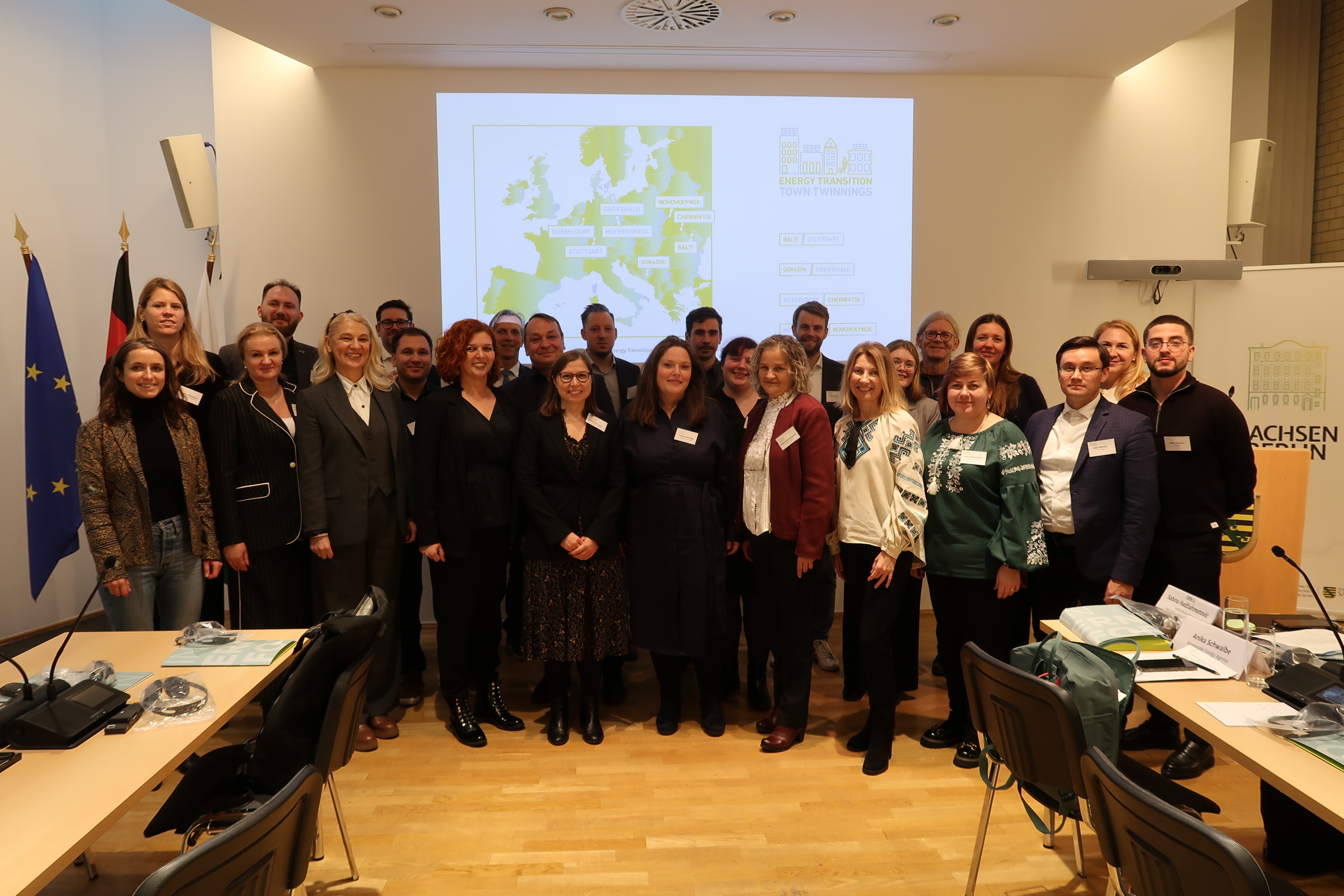Interview with Anika Schwalbe, Agency for Renewable Energies Germany: Town Twinning for partnerships between cities in energy transition

As cities play major role in energy transition, the work of the Agency is very much focused on cities and municipalities as leaders in the necessary change through the project “Energy Transition Partner City” , funded by the Federal Foreign Office, which just entered its third round. As this project has twinning-town component, we were very thankful to be invited to participate at the kick-off conference in Berlin, earlier this month and here are some key takeaways from Anika Schwalbe, Deputy Managing Director at The Agency for Renewable Energies.
Ms Schwalbe, congratulations on the successful launch of the third round of the project devoted to cities and municipalities’ energy transition. Could you tell us more about the project’s objective overall, how many cities and municipalities have taken part in it so far and what good practices you have seen as an outcome from the two previous cohorts?
Thank you Ms Tesic, and we were really pleased you made it possible to join us! The project aims to foster new partnerships and strengthen existing ones by sharing knowledge and expertise on renewable energy. In addition, the project aims to launch energy transition initiatives tailored to the specific needs and priorities of each municipality. These initiatives may include community-based heating solutions, citizen engagement and participation, or the development and construction of wind farms and solar farms. In the first two rounds we matched 20 municipalities from eight different countries. As far as I know since it’s the first time as a project manager in this project it was always a pleasure for the people involved in this project to get to know each other, to make new contacts and to work towards the same goal: a united sustainable Europe.
What countries and cities you have selected in this round of the projects and what German cities you are providing as role models for others in terms of sharing knowledge and experience?
This time the project team from the Agency for Renewable Energies (AEE) and the Berlin Governance Platform together with the German Foreign Federal Office selected Düsseldorf, Hoyerswerda, Stuttgart, and Greifswald from Germany and cities from the EU candidate countries such as Novovolynsk and Chernivitsi from Ukraine, Bălți from Moldova and Goražde from Bosnia and Herzegovina. But it is important for us not to hold up the German cities as the role model. Of course, they all have a lot of experience concerning the energy transition. However, the cities from the candidate countries also have a lot of knowledge for example about energy efficiency, technologies and civil engagement. As Town Twinnings we see them as equal partners.
What activities are planned for the project in order to elevate its potential and influence policy decisions across participating countries?
During the projects there will be for example several online workshops and meetings depending on the topics the twinned towns choose to work on for the next one and a half year. We provide them with information, do a lot of networking for them and try to support them in whatever they need to continue in their energy transition. Some already mentioned that they want to focus on how to get and find financing funding for renewables energy and on how to implement and plan a water treatment plant. Others are interested in communication skills and participation to increase the acceptance of the population, community co-operative or PVs on the roofs of public buildings. In addition to this we are also planning trips to the cities with the delegation twinned towns. As you can imagine we are still in the process of working out what we can offer instead of travelling to the Ukraine. On the other hand there will be a joint trip with the delegation and the project team to Brussels in 2026 and an online-event with all further Town Twinnings and interested participants.
We hope that the Town Twinning will emerge a partnership that will last beyond the project and it would be great to see things on the energy transition get underway in the coming years.
The Russian aggression has shown us how important it is to develop renewable energy throughout the EU and the candidate countries. They increase the independence and help rural communities because they can be used in a decentralised way. Our project aims to build partnerships to strengthen the exchange on the European energy transition across national borders.

Social Media